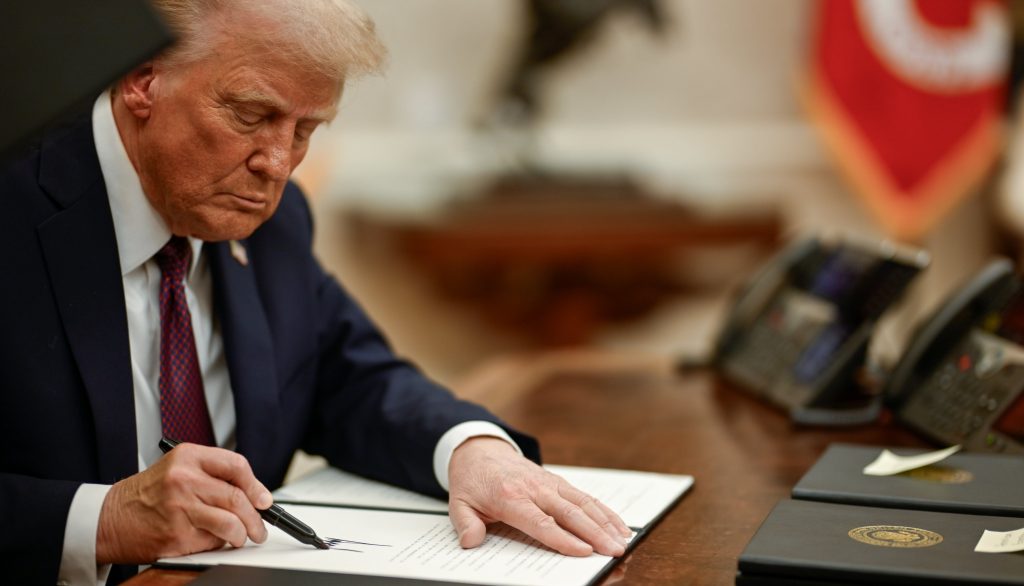New order aims to push automakers back to U.S. soil and rebalance international trade relations
Others are reading now
In a sweeping move set to rattle global auto markets, President Donald Trump announced on Wednesday a 25% tariff on all vehicles not manufactured in the United States. The measure, signed at a White House press event, will take effect on April 2 and is expected to generate hundreds of billions in revenue, according to the president.
Tariffs as leverage for reshoring production
“This is about American jobs and American manufacturing,” Trump said while signing the executive order. “If you build your car in the U.S., there’s no tariff. But if you don’t, you’re going to pay.”
The tariff applies to all passenger vehicles and light trucks, excluding auto parts made in the U.S. Trump predicts the policy could bring in between $600 billion and $1 trillion over the next two years. He cited Honda’s recent decision to build a new model in Indiana rather than Mexico as validation that the approach is already working.
Foreign automakers are now under increasing pressure to relocate production stateside. Trump emphasized the strategy as a double win: bolstering domestic industry while using trade policy to counteract what he described as unfair practices by other countries.
Also read
As reported by 20minutos, Trump referred to the upcoming date of April 2 as “Liberation Day,” signaling additional reciprocal tariffs for countries with existing duties on U.S. goods.
Exemptions and European tensions
Auto parts from Mexico and Canada will be temporarily exempt under the USMCA framework, though partial tariffs will apply to any non-U.S. content in vehicles assembled there. Importers must identify and report the American-made value in each vehicle to determine the tariff owed.
While Canadian and Mexican manufacturers may navigate the policy with relative ease, Trump’s comments made clear that European carmakers are a key target.
“We buy millions of cars from BMW, Volkswagen, Mercedes-Benz—millions,” Trump said. “But the EU makes it almost impossible to sell a single car in Europe. The European Union treats us horribly in trade.”
The move adds further strain to U.S.-EU relations, which have already been tested under Trump’s return to aggressive trade policy. Critics argue the tariffs could ignite retaliation and increase prices for American consumers, but supporters believe they’ll help revitalize U.S. manufacturing and reduce the trade deficit.
With more measures expected in the coming weeks, April 2 could mark a new phase in Trump’s economic doctrine—one where tariffs become a tool not just for revenue, but for reshaping global industry.








